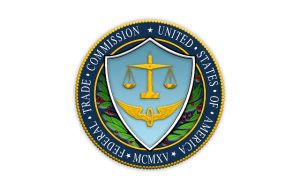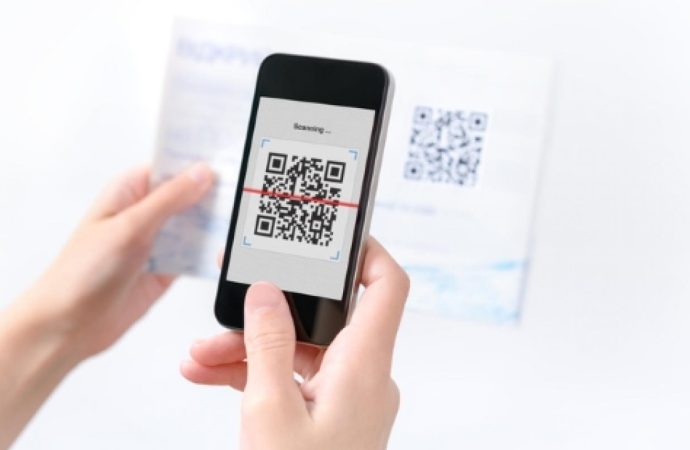Beware of QR Codes: An FTC Warning Author: Fred Wilson, Tech Writer and Cybersecurity Expert Introduction Hello, readers! I’m John Doe, a tech writer with over a decade of experience in the field of cybersecurity. I’ve spent my career helping people understand the digital threats that lurk in the shadows of our everyday online activities.
Beware of QR Codes: An FTC Warning
Author: Fred Wilson, Tech Writer and Cybersecurity Expert
Introduction
Hello, readers! I’m John Doe, a tech writer with over a decade of experience in the field of cybersecurity. I’ve spent my career helping people understand the digital threats that lurk in the shadows of our everyday online activities. Today, I want to talk about a topic that’s been making headlines recently – QR codes. These seemingly harmless black and white squares have become a ubiquitous part of our lives, but they also harbor potential risks that we need to be aware of.
Understanding QR Codes
QR codes, or Quick Response codes, are two-dimensional barcodes that can be scanned using a smartphone camera. They were first designed in 1994 for the automotive industry in Japan. Since then, their use has expanded globally and they’ve become a common sight in our daily lives, used for everything from restaurant menus to digital payments. They can store a large amount of data and can link to websites, apps, or text.
The Convenience of QR Codes
The beauty of QR codes lies in their convenience. They’re quick, easy to use, and can store a large amount of data. This has led to their widespread adoption across various industries. Businesses use them for marketing, customer service, and even for tracking inventory. Consumers use them for quick access to websites, to make payments, and even to log into Wi-Fi networks.
The Dark Side of QR Codes
However, like any technology, QR codes can be misused. Scammers have found ways to embed malicious links in these codes, leading unsuspecting users to phishing websites or triggering unwanted downloads. This is done by creating a QR code that links to a malicious website and then placing it over a legitimate QR code. When a user scans the code, they are taken to the malicious site instead of the legitimate one.
Real-life Incidents: QR Code Scams
There have been numerous incidents of QR code scams reported worldwide. In one case, a man scanned a QR code to pay for parking, only to have his personal information stolen and used for fraudulent activities. In another case, a woman scanned a QR code to download a restaurant menu, but instead downloaded a malicious app that took over her phone.

Picture by: FTC.gov
FTC’s Warning on QR Code Scams
The Federal Trade Commission (FTC) has issued a warning about these scams, urging consumers to be cautious when scanning QR codes. They recommend only scanning codes from trusted sources and verifying the URL before providing any personal information. The FTC also advises consumers to keep their mobile devices updated with the latest security patches, as these often include protections against known threats.
How to Protect Yourself
Here are some tips to stay safe:
- Only scan QR codes from trusted sources.
- Verify the URL before entering any personal information.
- Keep your smartphone software up-to-date to benefit from the latest security patches.
- Be wary of QR codes received in unsolicited emails or messages.
- Use a QR scanner that displays the URL before opening the link.
The Future of QR Codes
Despite these concerns, the future of QR codes remains bright. With proper precautions, they can continue to be a convenient tool for digital interaction. As technology advances, we may see new security features being added to QR codes to make them safer to use.
Table: Summary of Key Points
| Key Points | Details |
|---|---|
| What are QR codes? | Two-dimensional barcodes scanned using a smartphone. |
| Benefits of QR codes | Quick, easy to use, can store a large amount of data. |
| Risks of QR codes | Can be used for scams, leading to phishing websites or unwanted downloads. |
| FTC’s warning | Be cautious when scanning QR codes and only use codes from trusted sources. |
| How to protect yourself | Verify the URL, only scan codes from trusted sources, keep your smartphone software up-to-date. |
| Future of QR codes | Despite security concerns, QR codes are here to stay with potential for added security features. |
Remember, the digital world is full of both opportunities and threats. Stay informed, stay vigilant, and stay safe! Let’s continue to embrace technology, but always with caution. After all, our safety and security are in our own hands.

















Leave a Comment
Your email address will not be published. Required fields are marked with *